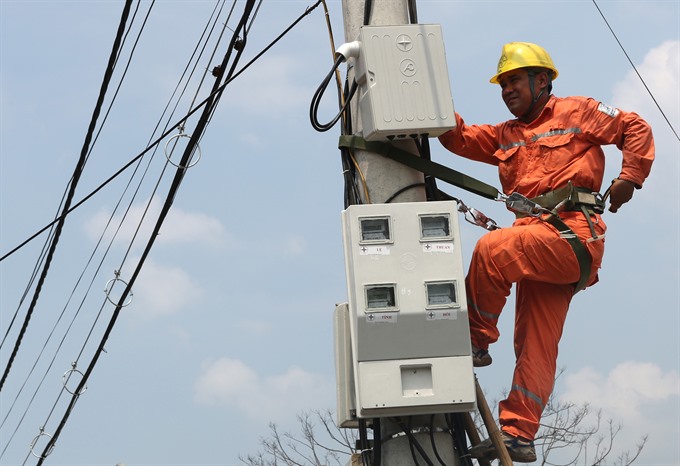The Ministry of Industry and Trade (MoIT) has not yet decided to adjust power tariffs this year and has been calculating basic prices, the ministry on Friday announced at an electricity production cost conference in Ha Noi.

The Ministry of Industry and Trade (MoIT) has not yet decided to adjust power tariffs this year and has been calculating basic prices, the ministry on Friday announced at an electricity production cost conference in Ha Noi.
The ministry said that EVN is required to build a basic price for the year of 2017 based on calculation of 2015 and estimates of 2016.
Concerning those numbers, Electricity of Viet Nam’s (EVN) 2015 power turnover reached more than VND234.3 trillion (US$10.32 billion) or equivalent to electricity retail price of VND1,630 per kWh.
Turnover from activities relating to power production and trading in 2015 was VND2.5 trillion.
According to Deloitte Viet Nam’s independent audit report, the losses which have not been calculated into EVN’s electricity production and trading in 2015 were up to VND8.5 trillion. The losses came from the foreign exchange rate differences throughout the group’s wholly invested companies. Its foreign exchange rate difference at companies which EVN holding shares was over VND1.3 trillion.
EVN in 2015 therefore posted a slight loss in power production and continued to sell electricity lower than the production cost.
Nguyen Anh Tuan, director of the ministry’s Electricity Regulatory Authority, said that in 2015 the prices of main fuels including coal, oil and gas affected the electricity production. The Ministry of Science and Technology in the same year promulgated a decision to increase gas prices sold to electricity production by 2 per cent while keeping coal prices stable.
“The important factor in 2015 was that hydropower plants did not reach the set productivity due to unfavourable hydrological conditions. The power output from hydropower plants was reduced and EVN had to mobilise electricity from coal-fired and gas-power plants. This affected to production costs,” Tuan added.
He added that according to current regulations, construction costs of villas and tennis courts have not been calculated into power production cost. The construction has come from the EVN’s welfare fund, of which, turnover from EVN’s financial activities was around VND1.01 trillion and those from its corporations was VND194.3 billion. Turnover from dividend and profit was VND60.95 billion.
He said the losses from the foreign exchange difference would be gradually accounted into power tariffs.
Dinh Quang Tri, EVN’s deputy general director said in 2015 that the group has itself avoided roughly VND3.5 trillion in foreign exchange difference losses thanks to maximising costs and increasing profit. The remaining losses will be gradually accounted for.
“Normally, the foreign exchange difference losses must be accounted in a year according to the accounting mechanism. However, the EVN asked the ministry and finance ministry to gradually handle the losses over five years due to its special characteristics. If the loss was accounted all at once, power tariffs would surge. The losses would be taken into account of power tariff or reducing production costs,” Tri said.
“The ministry would review the basic prices. If there is a change of input prices such as fuel, foreign exchange and rates of power resources higher than 7 per cent, the power tariff would be adjusted,” he added. — VNS





